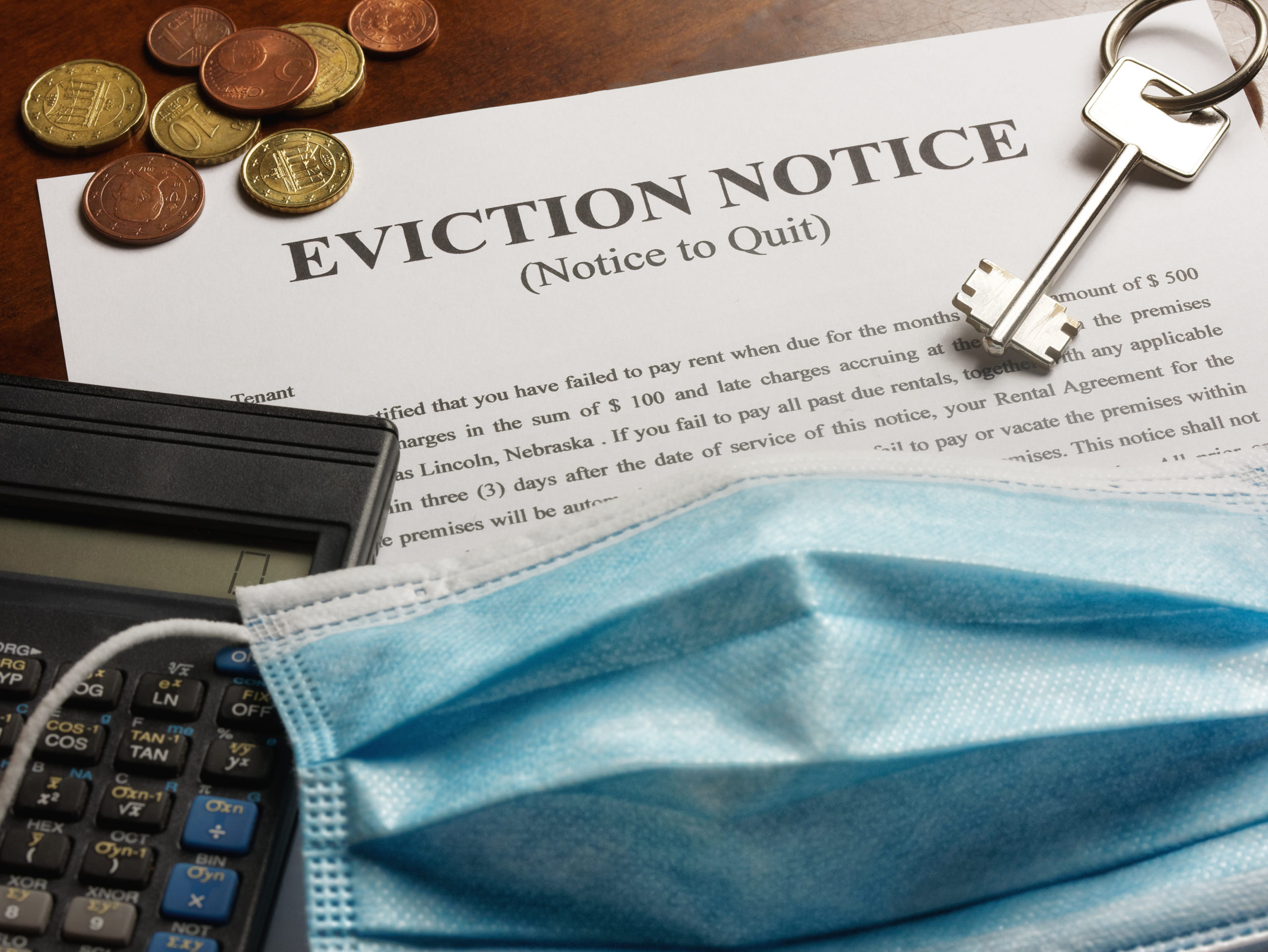Eviction has been a hot topic in the news lately with the end of the Center for Disease Control’s (CDC) eviction moratorium last week, and the pending increase in evictions we are poised to see without a federal prohibition in place. Beginning this week, landlords are again permitted to evict tenants for nonpayment of rent while they attempt to catch up on upwards of a year’s worth of missing rent payments.
There are four ways to properly evict someone in North Carolina. In all four the landlord must go to court, typically in small claims court before a magistrate. North Carolina no longer allows “self-help” eviction for residential leases, where a landlord can take action such as changing the locks or putting a padlock on the door, to exclude the tenant from the leased premises. Instead, a landlord must go to court and file a “Complaint in Summary Ejectment” and prove that the tenant did not pay rent, even after the landlord demanded it then waited 10 days; that the tenant stayed past the end of their lease; that the tenant breached the lease (which can include not paying rent); or that the tenant committed certain criminal activity.
Before the eviction moratorium, it did not matter why a tenant could not pay rent. Even if the tenant had a good reason, and it was not their fault that they could not pay rent, failing to pay rent was grounds for eviction. However, in response to the coronavirus pandemic, the CDC banned evictions nationwide on September 4 last year. For the past 11 months, landlords have been unable to evict tenants for nonpayment if the tenant qualified for protection under the moratorium. But, landlords could still have evicted tenants for one of the other three reasons above.
In late June, the U.S. Supreme Court refused to lift the much-challenged CDC ban on evictions and allowed it to expire this past Saturday without interference. This gave Congress until July 31 to pass additional legislation prohibiting evictions, which it did not do. North Carolina’s Council of State also opted not to extend the state-wide moratorium past July 1, so with the end of the federal prohibition on eviction tenants still suffering job loss and the other economic impacts of COVID-19 are left without the moratorium to help keep them in their homes.
What may be even more frightening for tenants facing eviction is what the moratorium did not prohibit. The federal moratorium only prevented eviction for nonpayment of rent, it did not prohibit landlords from seeking that rent later. Tenants still owe their landlords for missed payments under their lease agreements, neither the CDC ban nor the state ban on evictions prevented landlords from keeping a tally on rent due. Moving forward, we are likely to see not only an increase in evictions but also attempts by landlords to recover money owed to them under lease agreements.
Tenants in North Carolina are not entirely without assistance though. Last fall, Gov. Cooper created the Housing Opportunities and Prevention of Evictions Program (HOPE) using federal funds allocated to combat the economic impacts of COVID-19. This program helps low-income tenants with rent and utility assistance in North Carolina’s 88 smaller counties. Tenants and landlords can visit https://www.rebuild.nc.gov/hope-program for more details. The larger counties, including Guilford County, manage their own emergency rental assistance programs.
Finally, North Carolina courts will still need to process the eviction cases landlords file now that the moratorium has ended, and a backlog on eviction cases could easily delay hearings for weeks. We are facing a long and difficult return to normalcy, particularly regarding rental housing.
* Mr. Cline is a student at Elon School of Law. He graduates in December and plans to sit for the North Carolina Bar Exam in February. Mr. Cline has been working as a legal intern this summer with Revolution Law Group.
Revolution Law Group is located in Greensboro, NC, and serves individuals and small businesses throughout the Triad and surrounding areas. To contact us please visit Revolution.law or call 336-333-7907.
The information included here is for informational purposes only, is not exhaustive of all considerations when creating documents, is not intended to be legal advice, and should not be relied upon for that purpose. We strongly recommend you consult with an attorney and do not attempt to create your own documents.

